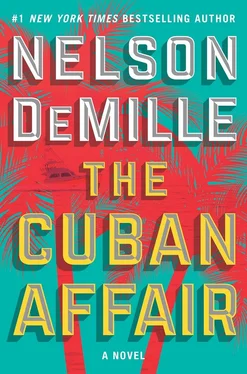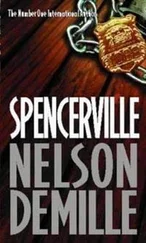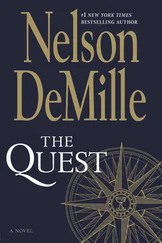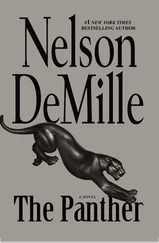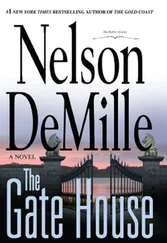We all got off the bus and marched through the ornate lobby, which showed signs of restoration, then out the back doors across a terrace and down the sloping lawn toward the Straits of Florida. We followed Tad and Alison to an open pavilion that was serving lunch to tourist groups.
There were two long tables in the pavilion reserved for the Yale group. We all seated ourselves, and I found myself between two couples who were trying to make conversation. Across from me was the bestselling author and his better-looking wife. Sara was at the other table.
I couldn’t imagine sitting here through a family-style lunch — pass the beans, please — so I excused myself and walked down toward the water to what seemed to be fortifications overlooking the Straits of Florida.
A freelance guide offered me a history lesson for an American dollar, and I promised him two if he kept it under four minutes.
The guide, a university student named Pablo, told me that some of these fortifications were ancient, but that F.C. had ordered new fortifications built on the high ground of the Hotel Nacional during the 1962 Cuban Missile Crisis when the regime feared a U.S. invasion.
The so-called fortifications looked pretty pathetic, consisting of some bunkers and a few exposed gun emplacements. As a former military man I knew that these structures could be knocked out in about two minutes by a single salvo of 16-inch naval guns. But sometimes the optics are more important than the substance.
Pablo also thought the fortifications were a joke, and he confided to me that he wanted to go to the U.S. He looked at the Straits and said, “Over there.”
“Good luck.” I gave him an American ten, and he gave me his opinion on the Cuban economy. It sucked.
As I was contemplating heading for the bar, Sara appeared and said something in Spanish to Pablo, who laughed and replied in Spanish, then walked off with his half month’s pay.
“What did you say to him?”
She smiled. “I asked if you were flirting with him, and if not, I’d give you a try.”
“You could have just said, ‘Adios, amigo.’ ”
“Conversation in Cuba has to be clever. That’s all they have.” She suggested, “Let’s take a walk.”
We walked along a park path that overlooked a four-lane road bordered by a seawall that ran along the shore. Sara said the road was called the Malecón, which meant the Breakwater. The Straits were calm, the sun was hot, and there was no sea breeze. Sara asked, “How are you enjoying your Cuba experience so far?”
“Too early to tell.” I added the mandatory, “The people seem nice.” Actually, they seemed listless and indifferent. “I need another day before I become an expert on Cuba.”
She smiled, then said, “They’re good people who’ve been badly served for five centuries by inept, corrupt, and despotic leaders. That’s why Cuba has had so many revolutions.”
They might have better luck picking a government out of the phone book. I asked, “How do you feel about being here?”
“I don’t know.” She confessed, “I feel some ancestral connection... but I don’t feel that I’m home.”
“How many Cubans in America would return if Cuba was free?”
“Fewer than those who say they would. But all of us would like to travel freely back and forth, to see family, and maybe to buy a vacation house — and to show our children and grandchildren where their parents and grandparents came from.”
“That would be nice. But not on that airline we flew in on.”
She smiled. “Within a year, there’ll be regularly scheduled airline service from the U.S. And by next spring there’ll be cruise ships at the Sierra Maestra Terminal filled with Americans.”
“Two nations, one vacation.”
“That’s clever. Did you make that up?”
“I did.”
We walked in silence awhile, me wondering why Sara skipped lunch to be with me, and she knowing why.
We reached the end of the park where a monument stood that Sara said was the Monumento a las Víctimas del Maine.
Well, that was ominous.
We turned and began walking back toward the hotel.
She asked, “How do you feel about the U.S. seeking improved relations with Cuba?”
“Well... I understand why it’s time to do that. But we need to get something in return.”
“We won’t get anything from these bastards. Except lies. Nothing will change here until the regime changes.”
“It’s a process. Cuba needs a half million American tourists and business people with money and big mouths spreading the idea of freedom.”
“Which is exactly what the regime is afraid of. There’s nothing in it for them, and they’ll pick some fight with the U.S., or... arrest some Americans on trumped-up charges in order to set back the process.”
“Is that what you’d like to see?”
“Yes, to be honest.”
“Well, as long as it isn’t us who are arrested.”
She didn’t reply, so I changed the subject. “I’m not sure I’m understanding our supposed relationship.”
“That’s what I wanted to talk to you about. As you know, we need to look like we’re having a holiday romance, so that when we disappear—”
“I understand. Happens to me on every vacation.”
“Yes, I’m sure, but not with a tour group in a police state. So to keep Tad and Alison from panicking and calling the embassy, we’ll leave them a note saying we’ve gone to the beach in Mayabeque Province — which is not where we’re going, of course — and we’ll be back in time for the return flight. As Carlos probably told you, we’ll leave our luggage in our rooms as though we’re coming back.”
“Right.”
She continued, “But even if Tad and Alison don’t call the embassy, our Cuban tour guide will report our disappearance to the authorities, who may or may not consider this a serious issue, and may or may not circulate our names and our airport photos to the police in Mayabeque — or all the provinces.”
“I’m listening.”
“Europeans, Canadians, and South Americans are allowed to travel independently around the country, so we won’t stick out in the countryside, and even if we’re stopped by the police I can probably talk us out of getting arrested.” She glanced at me. “We’re just starry-eyed lovers, off on a romantic getaway.”
“Hot as chili peppers.”
She smiled, then said, “We’ll probably be expelled, or possibly just returned to the group.”
“Sort of like catch and release.”
“I like your sense of humor.”
“Thank you. Here’s what’s not funny — if we have the sixty million dollars on us when we’re stopped—”
“Obviously that would be a problem. That’s the critical period — between the cave and The Maine.”
“Right. And if we get arrested with sixty million American dollars, you’ll get your wish about an incident that would set back diplomatic relations.”
“I don’t think our arrest would be enough to refreeze the Cuban Thaw. We’d also have to be executed.”
I saw she was smiling, but I didn’t think that was actually funny.
She said, “We need to take it a step at a time, and worry about it a step at a time. We need to be smarter than the police. Very soon we will be on The Maine, with the money, heading for Key West. That’s what I see in our future, and that’s what you need to see.”
“That’s why I’m here.”
“Good.”
“And by the way,” I asked, “do you know how we’re going to get the money onboard The Maine?”
“I don’t know at this time.”
“And when do you think you’ll know?”
She stayed silent a moment, then said, “Our contact in Havana will lead us to our contact in Camagüey Province, then my map will lead us to the cave, and a road will lead us to Cayo Guillermo.”
Читать дальше
